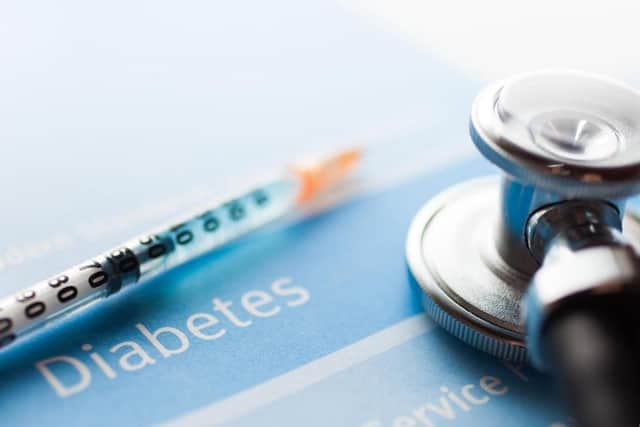Leeds hospitals trust opening Britain's first heart attack clinic for patients with Type 2 Diabetes
and live on Freeview channel 276
The innovative cardiometabolic clinic is part of a joint working partnership project with the pharmaceutical company Boehringer Ingelheim.
Around a quarter of patients who suffer a heart attack have Type 2 diabetes, and the presence of diabetes increases the risk of death by more than two and a half times when compared to heart attack patients who don’t have the disease.


Advertisement
Hide AdAdvertisement
Hide AdThe clinic focuses on reducing cardiovascular risk in people with diabetes who have recently been discharged from LTHT following a heart attack.
It is delivered jointly by the cardiology department at Leeds General Infirmary and the diabetes services at the Trust.
This is a patient-centred approach to reducing that risk, with pharmacist-delivered clinics scheduled for 6-8 weeks after the heart attack.
Stephen Wheatcroft, Professor of Cardiometabolic Medicine and Consultant Cardiologist at LTHT, said: “This is an exciting and innovative development, one of the first in the country. Previously, Type 2 diabetic patients presenting with heart issues would have been treated by two separate specialty teams.
Advertisement
Hide AdAdvertisement
Hide Ad"This is the first time there has been a specific clinic combining the cardiac and diabetes team working together.
“We aim to reduce the risk for patients, with earlier multidisciplinary hospital care, to help discharged patients achieve better diabetes control, through improved medication support and optimisation, reducing the need for further treatment and future hospital stays."
Patients were previously referred to their GP surgeries for diabetes control, but after one year over half of patients were found to have worse control.
The new service will explore the barriers to patients taking their medication and look to address the patients’ needs, including education and self-management, and help patients discharged from the clinic to have better diabetes control, through using their medication and helping with the reasons they might not take it.
Advertisement
Hide AdAdvertisement
Hide AdA patient Robert, 57, said: “I didn’t know having diabetes has an impact on my heart. Having a clinic that addresses the heart and my diabetes would be great and makes perfect sense.”
Pauline, who is 83, said: “Not having to attend separate clinics and getting my medicines all optimised in one appointment would be good and would save me a lot of time.”
Julie, 63, said “I just had a heart attack and was started on a lot of new medicines. With everything happening in the hospital, it is difficult to remember what people tell you. Knowing I will have a dedicated clinic review to address my individual risk and medicines will make me feel safer when I leave hospital.”
Patients will receive an extended consultation of one hour with the consultant or specialist pharmacist who will optimise both the cardiovascular and diabetes medications. This should reduce waiting times for appointments and the need for multiple consultations.
Advertisement
Hide AdAdvertisement
Hide AdThe project will be led by Cardiology Consultant Pharmacist, Dr Rani Khatib.
“This is a new exciting opportunity to deliver a person-centred combined heart and diabetes optimisation service," he said.
"We will work with people to explore and address their concerns and barriers to taking heart and diabetes medicines, reduce risk of having further complications, achieve better diabetes control, and provide education and better self-management."
